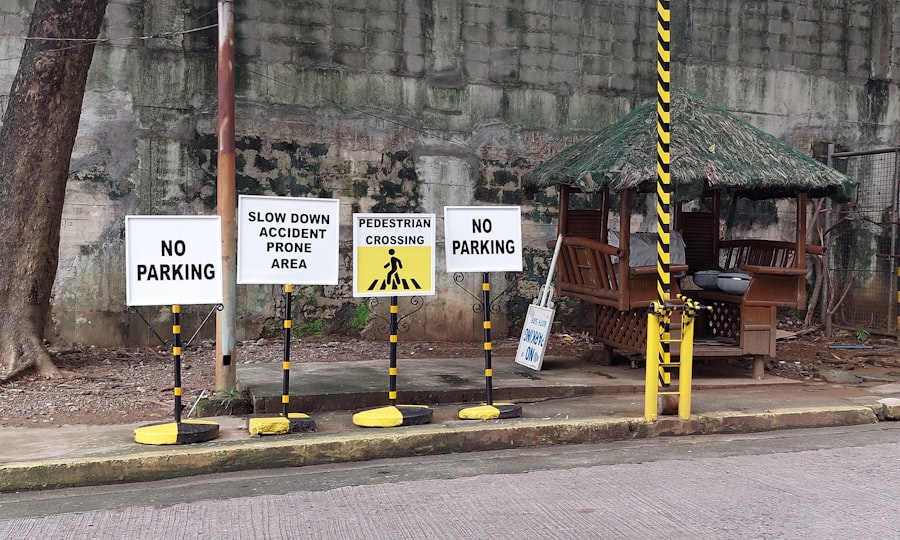As you navigate the evolving landscape of the legal profession, you may find yourself increasingly aware of the role artificial intelligence (AI) plays in paralegal jobs. The integration of AI technology into legal practices is not merely a trend; it represents a significant shift in how legal services are delivered. With the ability to process vast amounts of data and perform complex tasks with remarkable speed, AI is transforming the paralegal field, enhancing efficiency, and reshaping traditional roles.
Understanding this transformation is crucial for anyone looking to thrive in the legal sector. The advent of AI in paralegal work is not just about replacing human effort; it’s about augmenting your capabilities.
AI tools can assist you in these areas, allowing you to focus on more strategic aspects of your work. This article will explore the multifaceted impact of AI on paralegal jobs, examining both the benefits and challenges that come with this technological evolution.
Key Takeaways
- AI is revolutionizing the paralegal industry, transforming traditional tasks and creating new opportunities for efficiency and accuracy.
- AI has a significant impact on traditional paralegal tasks, such as legal research, document review, and contract analysis, leading to increased productivity and cost savings.
- The advantages of AI in paralegal work include improved accuracy, faster document review, enhanced decision-making support, and the ability to handle large volumes of data.
- AI plays a crucial role in legal research and document review by automating the process, reducing human error, and providing valuable insights for case preparation.
- Ethical and regulatory considerations in AI use for paralegal work include data privacy, bias in algorithms, and the need for transparency and accountability in decision-making processes.
The Impact of AI on Traditional Paralegal Tasks
When you think about traditional paralegal tasks, activities such as document preparation, legal research, and case management likely come to mind. These tasks have historically required significant time and effort, often leading to bottlenecks in workflow. However, with the introduction of AI, many of these processes are being streamlined.
For instance, AI-powered software can now automate document review and analysis, significantly reducing the time you spend on these tasks. This not only enhances productivity but also minimizes the risk of human error. Moreover, AI’s ability to analyze large datasets means that you can access relevant information more quickly than ever before.
Instead of sifting through mountains of paperwork or databases, AI tools can identify pertinent case law or statutes in seconds. This shift allows you to provide more timely and informed support to attorneys, ultimately improving the quality of legal services offered to clients. As a result, your role is evolving from one that primarily focuses on routine tasks to one that emphasizes critical thinking and strategic input.
Advantages of AI in Paralegal Work

The advantages of incorporating AI into paralegal work are manifold. One of the most significant benefits is increased efficiency. With AI handling repetitive tasks such as data entry and document management, you can allocate your time to more complex and intellectually stimulating activities.
Additionally, AI can improve accuracy in your work. Legal documents require precision, and even minor errors can have serious consequences.
By utilizing AI tools that are designed to flag inconsistencies or potential issues in documents, you can ensure a higher level of accuracy in your submissions. This capability not only protects your firm from potential liabilities but also builds trust with clients who rely on your expertise.
The Role of AI in Legal Research and Document Review
| Metrics | Value |
|---|---|
| Time Saved | Up to 80% |
| Accuracy | Increased by 30% |
| Cost Reduction | Up to 50% |
| Document Review Speed | Accelerated by 60% |
Legal research is a cornerstone of paralegal work, and AI is revolutionizing how this task is approached. Traditional research methods often involve extensive manual searches through legal databases and libraries, which can be time-consuming and labor-intensive. However, AI-driven research tools can quickly analyze case law, statutes, and regulations, providing you with relevant information at an unprecedented speed.
This capability allows you to stay ahead in a fast-paced legal environment where timely information is crucial. In terms of document review, AI has made significant strides as well. Machine learning algorithms can be trained to recognize patterns and identify key information within documents.
This means that during the discovery phase of litigation, for example, you can rely on AI to sift through thousands of documents to find those that are most relevant to a case. By doing so, you not only save time but also enhance the thoroughness of your review process.
Ethical and Regulatory Considerations in AI Use for Paralegal Work
As you embrace the benefits of AI in your paralegal work, it’s essential to consider the ethical and regulatory implications that accompany this technology. The legal profession is governed by strict ethical standards, and the use of AI raises questions about confidentiality, data security, and accountability. For instance, when using AI tools that analyze client data or case information, you must ensure that sensitive information is protected from unauthorized access.
Moreover, there is an ongoing debate about the extent to which AI should be involved in decision-making processes within legal contexts. While AI can provide valuable insights and recommendations, it cannot replace the nuanced judgment that comes from human experience and understanding of the law. As a paralegal, it’s crucial for you to remain vigilant about these ethical considerations and advocate for responsible use of AI technologies within your firm.
Training and Education for Paralegals in AI Technology

To fully leverage the advantages of AI in your paralegal career, ongoing training and education are vital. As technology continues to evolve, so too must your skill set. Familiarizing yourself with various AI tools and platforms will not only enhance your efficiency but also position you as a valuable asset within your firm.
Many legal education programs are beginning to incorporate technology training into their curricula, recognizing the importance of equipping future paralegals with the skills needed to navigate an increasingly digital landscape. Additionally, seeking out professional development opportunities focused on AI can further enhance your expertise. Workshops, webinars, and online courses can provide you with insights into how AI is being utilized in the legal field and how you can apply these tools effectively in your work.
By investing in your education around AI technology, you are not only preparing yourself for current demands but also future-proofing your career in an industry that is rapidly changing.
The Future of AI in Paralegal Jobs
Looking ahead, the future of AI in paralegal jobs appears promising yet complex. As technology continues to advance, it is likely that we will see even more sophisticated applications of AI within the legal sector. Predictive analytics could become commonplace, allowing paralegals like yourself to anticipate case outcomes based on historical data trends.
This capability could significantly enhance strategic planning for cases and improve client outcomes. However, with these advancements come challenges that must be addressed. The potential for job displacement due to automation remains a concern for many in the legal profession.
While it’s true that some routine tasks may be automated, it’s essential to recognize that the human element will always be necessary in legal work. Your ability to interpret complex legal issues, communicate effectively with clients, and provide empathetic support cannot be replicated by machines.
Challenges and Limitations of AI in Paralegal Work
Despite its many advantages, the integration of AI into paralegal work is not without challenges and limitations. One significant concern is the reliability of AI systems; while they can process data quickly and efficiently, they are not infallible. Errors in algorithms or biases in training data can lead to incorrect conclusions or recommendations.
As a paralegal, it’s crucial for you to maintain a critical eye when using AI tools and verify their outputs against established legal standards. Another challenge lies in the cost associated with implementing advanced AI technologies within law firms. Smaller firms may struggle to afford cutting-edge tools or may lack the resources necessary for comprehensive training programs.
This disparity could create a divide between larger firms that can invest heavily in technology and smaller practices that may fall behind. As someone working in this field, advocating for equitable access to technology will be essential for ensuring that all paralegals can benefit from advancements in AI.
Examples of Successful Integration of AI in Paralegal Firms
Several law firms have successfully integrated AI into their paralegal operations, showcasing the potential benefits of this technology. For instance, some firms have adopted AI-driven contract analysis tools that allow paralegals to review contracts more efficiently than ever before. These tools can identify key clauses and flag potential issues for further review by attorneys, streamlining the contract negotiation process.
Another example involves firms utilizing predictive coding technology during e-discovery processes. By employing machine learning algorithms to categorize documents based on relevance to a case, paralegals can significantly reduce the time spent on document review while increasing accuracy. These successful integrations demonstrate how embracing AI can lead to improved workflows and enhanced service delivery within legal practices.
The Human Touch: Balancing AI with Human Expertise in Paralegal Work
While AI offers numerous advantages for paralegals, it’s essential to remember that technology should complement rather than replace human expertise. Your unique skills—such as critical thinking, emotional intelligence, and interpersonal communication—are irreplaceable assets in the legal field. Clients often seek reassurance and understanding during challenging times; these qualities cannot be replicated by machines.
Striking a balance between leveraging AI tools and maintaining human involvement is crucial for delivering high-quality legal services. As you incorporate technology into your workflow, consider how you can enhance client interactions through empathy and understanding while utilizing AI for efficiency gains behind the scenes. This balance will not only improve client satisfaction but also reinforce the value of human expertise within an increasingly automated landscape.
Embracing the Potential of AI in Paralegal Jobs
In conclusion, as you explore the integration of artificial intelligence into paralegal jobs, it becomes clear that this technology holds immense potential for enhancing efficiency and accuracy within the legal profession. While challenges exist—ranging from ethical considerations to potential job displacement—the benefits far outweigh the drawbacks when approached thoughtfully. By embracing AI as a tool rather than a replacement for human expertise, you position yourself at the forefront of a transformative era in law practice.
Continuous education and adaptation will be key as you navigate this evolving landscape. Ultimately, by harnessing the power of AI while maintaining your unique human touch, you can contribute significantly to the future success of your firm and the legal profession as a whole.
In the rapidly evolving landscape of artificial intelligence, one pressing question is whether AI will take over paralegal jobs. As AI technology continues to advance, it is increasingly capable of performing tasks traditionally handled by paralegals, such as document review and legal research. This shift raises concerns about job security and the future role of paralegals in the legal industry. For a deeper exploration of how AI is impacting various professions and the broader implications for the workforce, you can read a related article on this topic by visiting How Wealth Grows. This article delves into the potential for AI to transform not only legal jobs but also other sectors, offering insights into how individuals and businesses can adapt to these changes.
FAQs
What is AI?
AI, or artificial intelligence, refers to the simulation of human intelligence in machines that are programmed to think and act like humans. This includes tasks such as learning, problem-solving, and decision-making.
What are paralegal jobs?
Paralegals are professionals who assist lawyers in various legal tasks, such as conducting research, drafting legal documents, and organizing case files. They play a crucial role in supporting the legal team and ensuring the smooth operation of legal processes.
Will AI take paralegal jobs?
AI has the potential to automate certain tasks traditionally performed by paralegals, such as document review and legal research. However, it is unlikely to completely replace paralegals, as their role involves complex decision-making and human interaction that AI cannot fully replicate.
How is AI impacting the paralegal profession?
AI is changing the way paralegals work by streamlining repetitive tasks, improving efficiency, and providing valuable insights through data analysis. This allows paralegals to focus on more complex and strategic aspects of their role, ultimately enhancing their value within the legal industry.
What skills can paralegals develop to adapt to AI in the workplace?
Paralegals can adapt to the increasing presence of AI in the workplace by developing skills such as data analysis, technology proficiency, critical thinking, and problem-solving. Embracing AI as a tool to enhance their work rather than a threat to their jobs can also help paralegals thrive in the evolving legal landscape.
